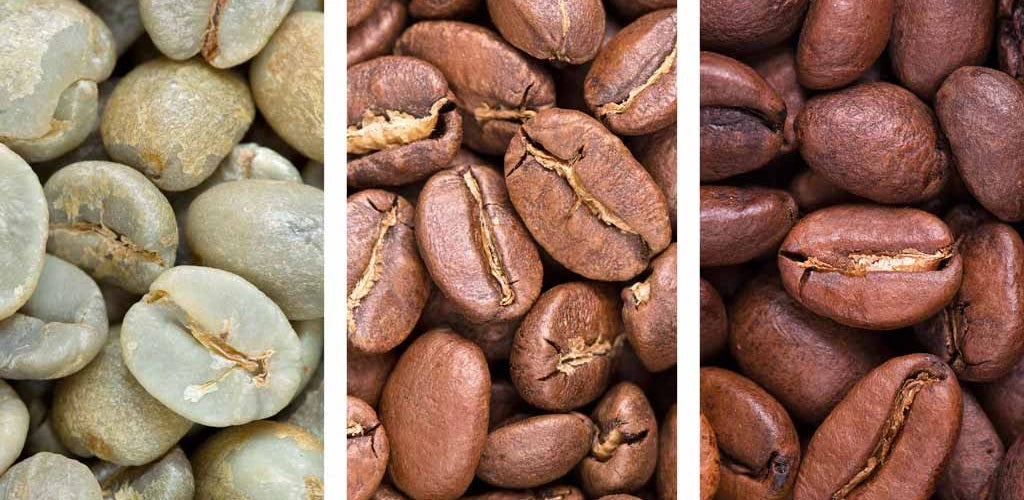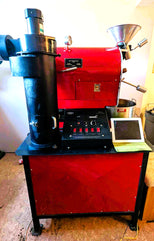
Do I Need a Destoner For My Coffee Roaster?
 Destoners are an essential part of the roasting process, serving as insurance and that extra layer of protection for your equipment, your coffee product, and your reputation.
Destoners are an essential part of the roasting process, serving as insurance and that extra layer of protection for your equipment, your coffee product, and your reputation.
Once you’ve decided to start or grow your new coffee business, the thrill can be exhilarating. For every dream of success you have, that thrill is often paired with indecision over all the things you need to or buy to get up and running. It’s likely that funds are tight and budget is king, so besides the big investment of a new roaster or used roaster, you’re probably calculating the next best equipment to add to the mix.
We at CoffeeTec have traveled this start-up cost highway many times and are here to help. So it’s with much experience that we say this: After your coffee roaster and afterburner, the next essential piece of equipment to give you the best fighting chance to protect your business interests is a destoner.
What is a destoner, you ask? Circle up, friends, for a little “Destoner 101.” Let’s look at what a destoner is, how it works, the reasons why you need one, and things to watch for when you finally take our advice and buy one.
 So, What Exactly Is A Destoner?
So, What Exactly Is A Destoner?
When your long-awaited shipment of green coffee beans arrives, it doesn’t necessarily mean it’s “clean.” Just consider how coffee is processed after it has been picked on coffee farms around the world.
Most countries that grow coffee still use a very low-tech, yet tried-and-tested, way to process and dry coffee beans. This often includes spreading the washed and processed beans across concrete to let them naturally dry out. While this is a very eco-friendly way to dry the beans, when they are gathered back up, other things like crumbled concrete, twigs, metal, nails, and actual small stones (hence, the name), may be gathered up with them. Even with the introduction of elevated mesh coffee bean drying beds, which can reduce the extra “stuff,” a manual drying and handling process is never foolproof.
Enter the destoner, a machine that processes your roasted beans to separate out the unwanted stuff before your roasted beans are bagged and ground. Destoners are an essential part of the roasting process, serving as insurance and that extra layer of protection for your equipment, your coffee product, and your reputation. And they’re the last chance you have to ensure clean, trouble-free coffee. Put another way, the destoner is that friend that always has your back.
 How Does A Destoner Work?
How Does A Destoner Work?
For such an important machine, its process is quite simple: Most destoners use a pressurized air vacuum (pneumatic) system and are designed to nestle up against a coffee roaster’s cooling bin chute. When the beans are released from the roaster’s cooling bin chute, they spill down into a holding tub at the bottom of the destoner. The roasted coffee is then sucked from this tub up a narrow chute, then eventually into a silo with a slide gate for emptying the coffee before it goes to the grinder or packaging line.
All the unwanted extras collect in a mesh trap at the bottom of the pneumatic tube. This can also include coffee beans that didn’t roast properly because they were underripe. These defective beans are called Quakers. Why? Well, we’re not exactly sure but perhaps like their religious counterparts, these are the beans that resist going with the flow. At any rate, removing these Quakers will give you a cleaner-tasting coffee.
The Reasons You Really Need A Destoner
We touched on this earlier but it bears repeating. From the moment the coffee beans are picked until they reach your customer’s coffee cup, it takes a long road with several stopping points where the beans need to be processed and sorted. These processes include harvesting, picking, conveying, carrying, drying, washing, pulping, sorting, bagging, and transporting to the warehouse. There’s plenty of opportunities to attract some unwanted hitchhikers along the way.
Despite all the best-laid plans and processes, stones just happen. Perhaps this should be put on a bumper sticker because it’s funny, but it’s no joke when this stuff lands inside your coffee roaster’s drum or in your grinder, where it can cause serious damage. Let’s all say it together, this time with emphasis: Your destoner is your last defense against anything that’s not a good, clean bean.

Your Destoner Cheat Sheet
Most major roaster manufacturers either build destoners or have them built for their roasting machines. The designs vary but they all operate on the same general principles. The good news is there’s no rule that you have to buy the destoner from the same manufacturer of your roaster. The process is simple enough and fairly universal, so different roaster and destoner brands can be used. Still, just like with any big purchase, you want to make sure you buy the best destoner for you.
Here’s a little cheat sheet of items to look for:
- Make sure the destoner you buy is rugged. It’ll be put through its paces!
- Make sure the destoner’s cycle speed can keep up with your production cycle -- keeping in mind how long it takes to load, roast, and cool your beans -- so that you don’t lose precious production time.
- Make sure the destoner’s efficiency and safety are on point:
- How easy is it to adjust the vacuum pressure?
- Are the operation controls located within easy reach?
- Does your location have enough floor space and height for the destoner to operate?
- How easy is it to clean the destoner? This is important because you’ll be doing it at least once per day when you’re roasting.
- Does it have a handlebar for easy navigating?
- Does the destoner have a bin (or gate) that can adjust to different heights? Does it have a dust collector bag?
- Does it have a window built into the pneumatic tube so that you can view the moving beans? This feature helps you visually judge airflow and determine if it needs adjusting.
- Does the destoner use manual control, often requiring you to climb a ladder to reach it, or does it use more automated or variable speed control?
- Do you want a destoner on casters to roll around -- like to the roaster, to the production line, or out of the way -- or do you want it to be stationary. This may seem like a small thing but trust us: Pay attention to the slope of the curve of the pipe where the coffee beans flow down into the silo. A more gentle curve will help protect the beans from damage as they fall into the silo.
- Does the destoner use a standard wall socket, or does it require 3-phase power?

“So, Do I Really Need A Destoner?”
Our advice is yes if you can afford to purchase a destoner (usually under $10,000 USD), then you really can’t afford not to. It should be viewed as a necessary investment in your coffee and your brand.
Still, it’s an expense. We get it. If you’re a smaller volume roaster who works with producers who use more clean coffee drying practices like elevated drying beds, you may be happy enough to rely on visual inspection.

We should mention that there's another option that may fit the bill for you — and that's a portable destoner. If both cost and space are issues, for under $2,000, you can purchase a destoner that will process up to 2,000 pounds per hour — the same as its standard counterpart and at a fraction of the cost! A portable destoner also can plug directly into a standard wall socket, eliminating extra steps for connecting a larger unit to the correct power sources. The hoppers are a bit smaller (either 15-lb or 25-lb capacities) and must be manually loaded, but that's a small concession to make, given the cost savings.
At the end of the day, and no matter the volume of coffee you produce, the decision is yours. Just remember that it only takes one single stone to ruin your equipment, your product’s quality, your reputation, and your customer base. Why take that risk when destoners are so accessible?
Yes, you may invest up to ten grand (and often less) in a destoner, but your ability to sleep at night knowing that you’re doing everything possible to deliver a clean product to your customers is priceless. And, hopefully, that consistent quality and attention to detail will translate into a more profitable business.
So, are you ready to start shopping for a destoner? Let’s go, Shop now!.

Need Help Deciding?
We’re here for you and would love to help you make the best purchasing and design or layout decisions for your coffee roastery’s operations. No matter where you are in your coffee journey, we want to see you succeed. Check out our consulting and education services. Perhaps you’re interested in financing or are considering the option and benefits of buying used. We’ve got you covered for both. Finally, feel free to explore our FAQs, and if you still don’t have answers to your questions, contact us. Let’s help you build the coffee roastery of your dreams!


Leave a comment